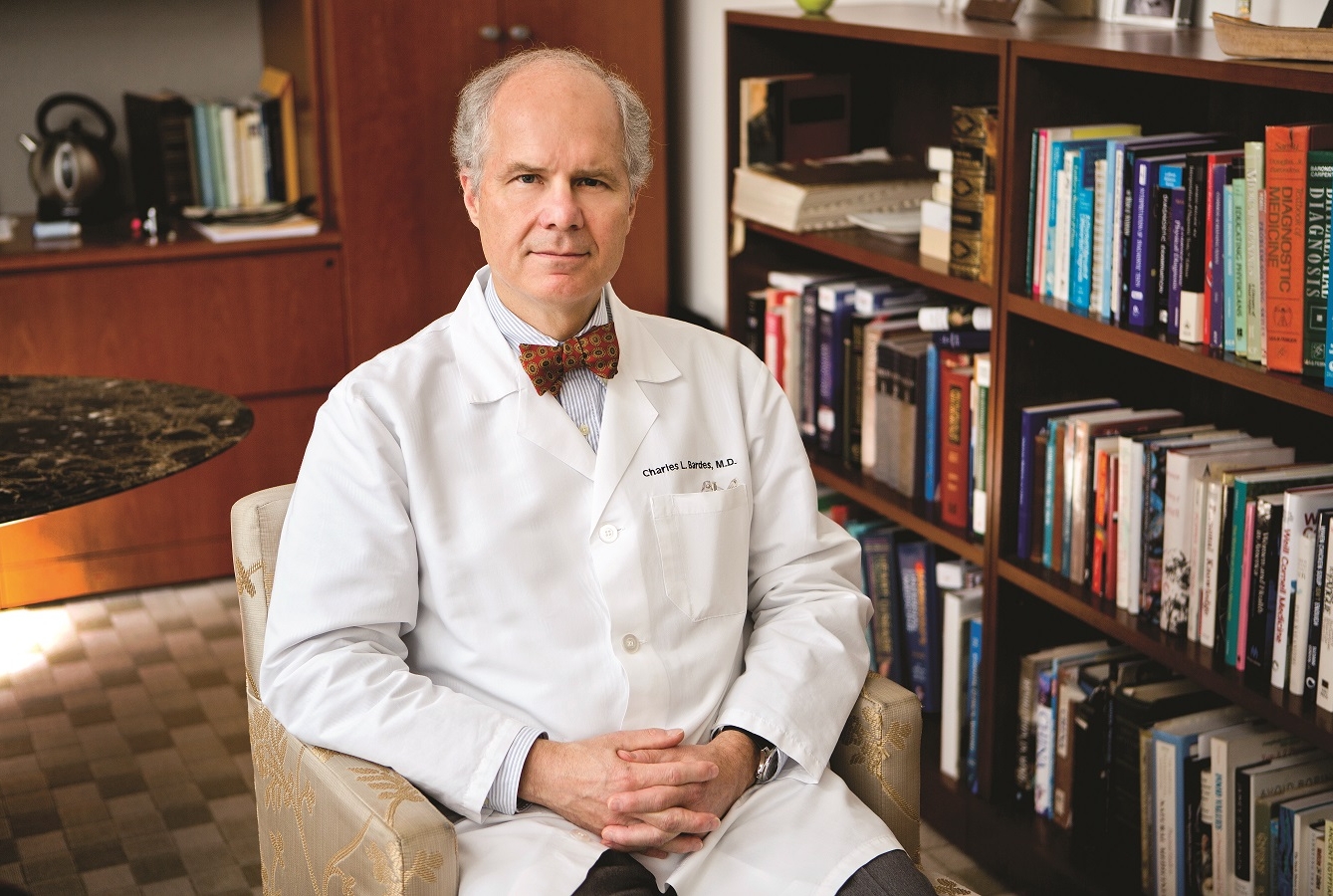“As a writer, I never felt that medicine interfered with me but rather that it was my very food and drink, the very thing that made it possible for me to write,” poet and physician Dr. William Carlos Williams reflected toward the end of his life. “Was I not interested in man?”
Dr. Williams is among the many influences—along with Greek myths, pop songs and the language of medical rounds—that manifest in “Diary of Our Fatal Illness,” a book-length prose poem by Dr. Charles Bardes. But the most important source is Dr. Bardes’s own experience as a doctor, son and poet—one who has found inspiration in, as Dr. Williams put it, a “lifetime of careful listening.” “Literature is interested in what it means to be human, what it means to suffer,” says Dr. Bardes, a professor of clinical medicine and associate dean of admissions at Weill Cornell Medicine and an internist at NewYork-Presbyterian/Weill Cornell Medical Center. “Medicine engages in that, too. As a doctor, you talk to people about the things that matter most to them—love, aspiration, disappointment, frustration, the tangles that we all find ourselves in. ‘Diary’ is my attempt to bring together my experiences—medical, literary and life—over the decades. When people ask me how long it took to write this book, the truthful answer is 30 years.”
The result is a 48-page volume, published last spring by the University of Chicago Press, that follows an 81-year-old man from cancer diagnosis through death. Told from the point of view of a son who is also a physician, the voice ranges from high literature—with echoes of Modernist poets like Dr. Williams and T.S. Eliot—to dark comedy: My father said, You read me like a book, sir. / The doctor said, But halfway through I’m really only skimming.
Dr. Bardes is careful to note that although his father did pass away after a battle with cancer, the first-person speaker who narrates much of the poem is not purely autobiographical. “About ten years ago, my own father’s illness crystallized many of the ideas that I was having about medicine and the ancient healing gods—the idea of disease as metamorphosis—but there’s a lot of fiction in the book,” says Dr. Bardes. “The speaker of the poem has a brother, but I don’t. The exchanges between doctors and patients were drawn mainly from my experiences as a physician, not from my father’s as a patient.”
The writer-physician’s path to poetry began with an early love of language in a Philadelphia family where Shakespeare was routinely quoted at the dinner table by his father, a former naval officer. Dr. Bardes went on to major in English at Princeton, but as graduation approached he realized that his writing “was too much founded in books, and not enough in experiences.” As he recalls: “I began to think about what profession would bring me most into contact with people. That’s when I thought about Dr. William Carlos Williams, and the idea of medicine dawned on me.” After taking post-baccalaureate science courses and working in a cancer research lab, Dr. Bardes enrolled in medical school at the University of Pennsylvania. But he continued to write, taking a year off to pursue an MFA in poetry at Temple.
Dr. Bardes put his literary life on hold as a resident and during his early years on the Weill Cornell Medicine faculty, which he joined in 1989, but took up writing again in the late 90s. When the Boston literary journal Agni published some of his lyrical prose pieces on medical themes, they caught the eye of a Bellevue Literary Press editor who asked Dr. Bardes to consider writing “the biography of a disease.” “Pale Faces: Masks of Anemia”—an illustrated meditation on disease and health that Dr. Bardes produced with his wife, visual artist Barbara Kilpatrick—was published in 2008. While the book is primarily nonfiction, Publishers Weekly noted its “extended flights of word play,” and Dr. Bardes has allowed himself even greater literary freedom in “Diary of Our Fatal Illness.” “At one end of the writing spectrum might be an article in a scientific journal, and at the other end, highly personal and revealing poetry,” he says. “As a man and a physician, the closer you are to the first end, the safer you feel. As the years have gone by, I’ve felt less of a need to hold onto the safety line of medical prose. And as I push in the direction of poetry, I can say a lot more and it has greater meaning for me.”
“Diary” has found an appreciative audience in the world of letters. As the winner of the New Georgia Arts Collaborative’s Literary Achievement Award, Dr. Bardes will serve as an artist-in-residence for two weeks in early 2018—lecturing, giving public readings and meeting with other authors. “Literature and medicine are both forms of paying attention,” Dr. Bardes observes. “When you bring the principles of reading and writing to doctoring, you become better at listening to your patients’ stories, and they pick up on that. They understand that you’re not reducing them to a series of biological events, you’re trying to understand their experiences—and it becomes a way of offering more of yourself to your patients, too.”
— C. A Carlson
This story first appeared in Weill Cornell Medicine, Vol. 16. No. 4

